Here’s a harsh truth that very few hiring managers or project managers will tell you:
The world primarily cares about what it can get from you.
They don’t teach you that in high school or college, but it’s true. It’s not enough to be a nice person or to dress professionally. It’s not enough to be funny or smart or show up on time.
You have to have real tangible skills if you want to succeed in any worthwhile profession.
It’s especially true in project management. There’s too much on the line to leave these complex projects to chance. Your stakeholders need things, and they won’t take a chance on you unless you can prove you have the skills to pull it off.
The right combination of project management skills and confidence is an unstoppable force in the project management world.
In this article, we’re going to set the record straight on what skills you actually need to be successful:
Hard skills vs. soft skills
Hard skills — or technical skills — are both teachable and measurable abilities. Some examples of technical skills include reading, writing, math, and familiarity with specific software programs.
Soft skills, on the other hand, are the traits that make you unique in the workplace. Some examples of soft skills include empathy, leadership, good communication, and the ability to get along with people.
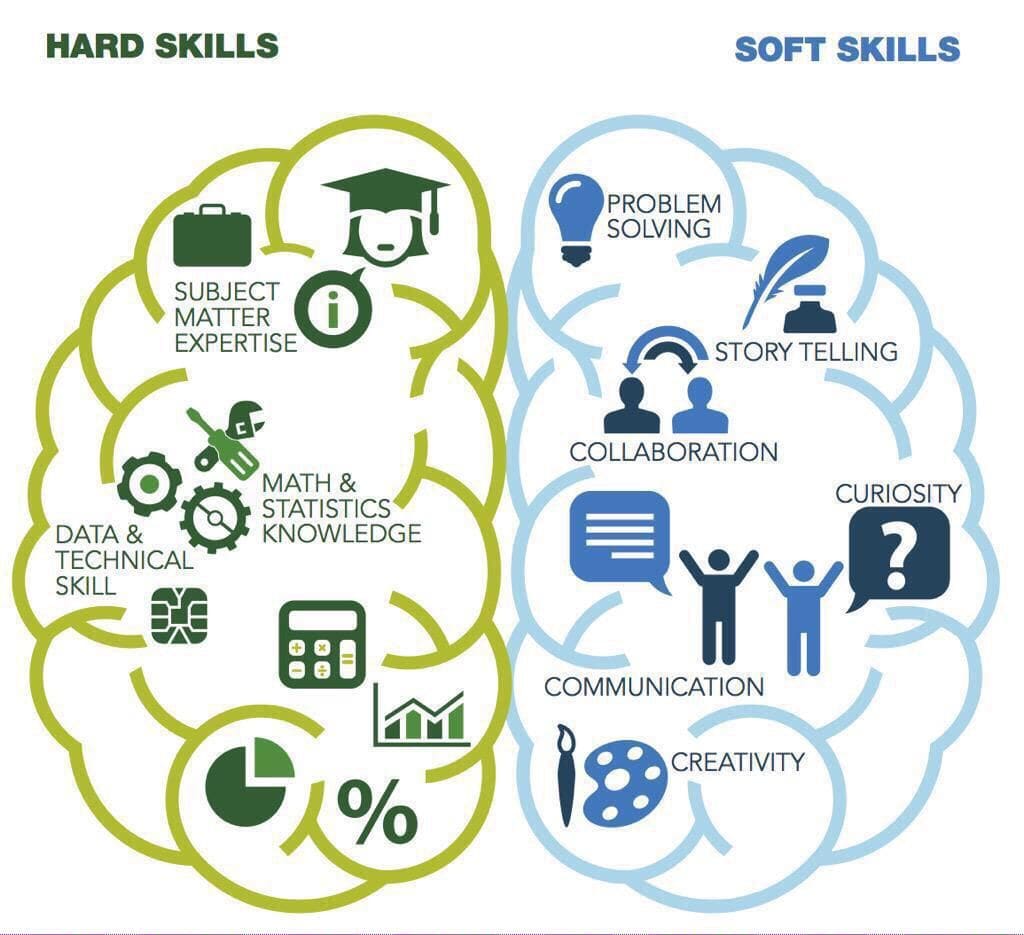
When people think about hiring or job success, their minds typically go to hard skills since they’re more specific to the role.
However, a recent survey found that 92% of talent professionals and hiring managers believe strong soft skills are becoming more important for candidates.
When it comes to project management skills, you’ll need the technical skill to pull off the job in question, and the soft skills to rally your team around the cause.
The interesting dynamic between hard and soft skills is that the former has more of a linear path for learning, where the latter requires more experience.
Technical skills come from reading books, taking classes, and on-the-job training. They’re teachable.
Soft skills are harder to teach, and most companies don’t have a mechanism for teaching employees soft skills in the way they can with hard skills.
In short, most hiring managers will favor a candidate who already possesses the soft skills necessary for the role. Job descriptions are typically a list of both sets of skills ordered by importance. Job seekers should use that to their advantage.
Now that we’re on the same page regarding hard and soft skills, it’s time to take a closer look at which project management skills are in high demand.
4 technical project management skills you should hone in 2023
We’ll begin with hard skills because these are arguably the easiest to learn:
1. Subject matter expertise
Subject matter expertise is about bringing the right knowledge and experience to the project that makes you credible in the role.
Here’s why it’s great for project management
You need to know enough to know what you don’t know. That’s the baseline. It helps you avoid blind spots in your planning and execution. It also helps you determine who to hire based on your team’s knowledge and experience gaps.
If you know more than that because you’re familiar with the industry, then that’s definitely a leg up. You’ll see the angles most people don’t.
That’s what a true subject matter expert brings to the table. They connect dots, hire more thoughtfully, and approach every problem with a wealth of knowledge to fall back on.
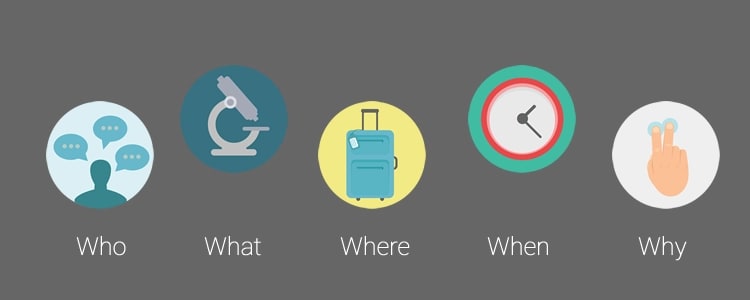
Here’s how you go about getting it
Ask questions — lots of them. Build up your circle of trusted advisors and go-to people you can count on to give you the best possible advice in a pinch. That network is invaluable and arguably more important than an advanced degree.
As a project manager and SME combo, you’ll likely need to invest in some higher education. That could mean a bachelor’s degree, master’s degree, and possibly some certification courses as well.
In essence, you need to hone each specialty skill one-by-one until it adds up to something big.
Lastly, an SME knows their tools front-to-back and back-to-front. They master their operating systems and use them to their fullest capability rather than using a small portion of the total feature load like most people.
2. Scheduling
With 71% of projects not being completed on time, the ability to plan a schedule is crucial to project success.
Here’s why it’s great for project management
Creating and sticking to a project schedule is a must for any successful project manager.
Scheduling involves resource management, understanding deliverables, task management, and how they all intersect with the budget.
You also need to understand the various ways to keep a project on schedule, like a Gantt chart, a project calendar, or Work Breakdown Structure (WBS).
Managing projects, especially with remote teams, requires a robust project management tool. One that compliments your project management skills and makes it easier to plan projects and execute on them.
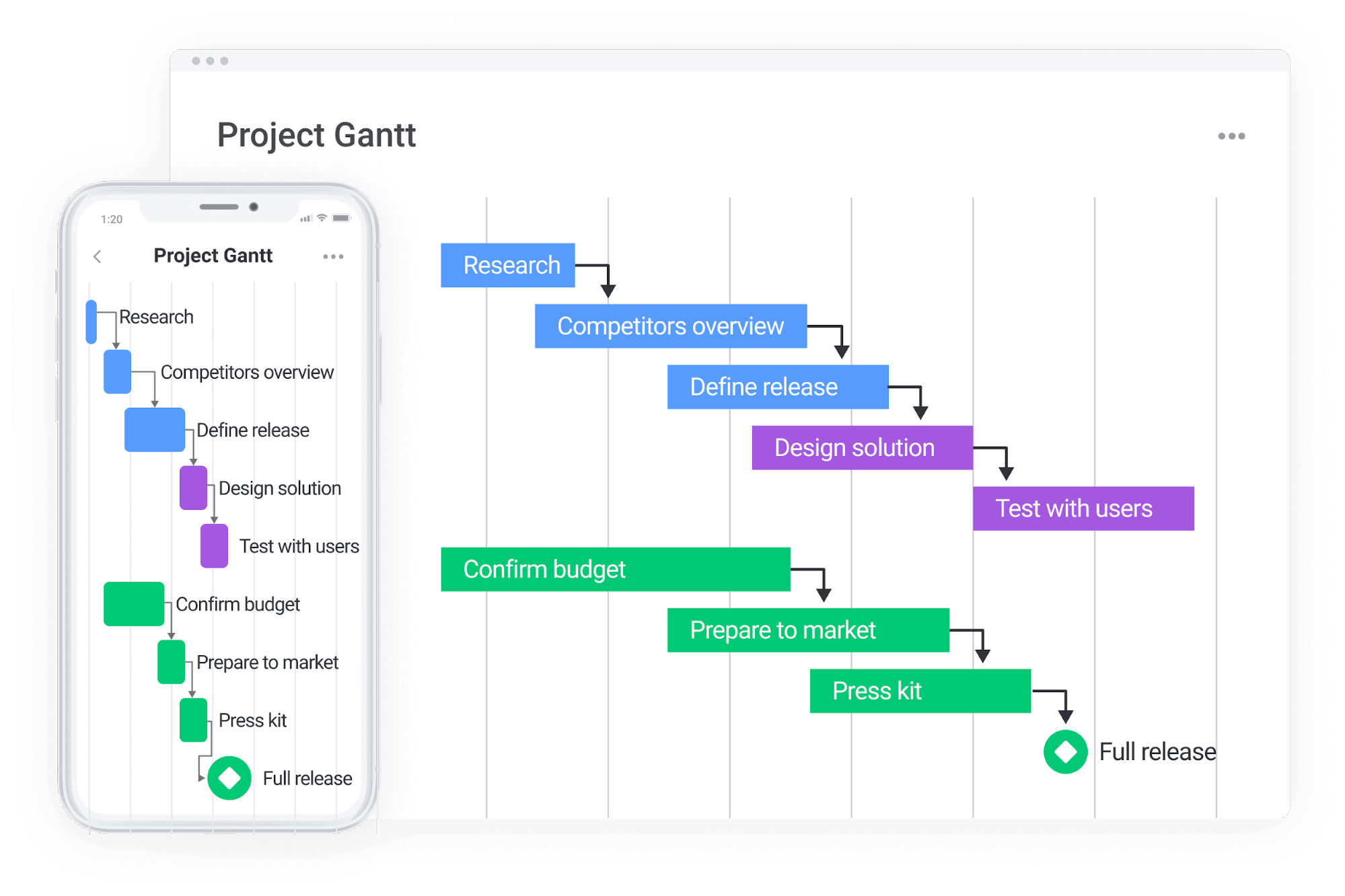
Here’s how you go about getting it
To get good at scheduling, you’ll need data that’ll help you prioritize tasks. It’s also crucial to add in a healthy buffer because we all tend to overestimate what we can do in a day and underestimate what we can do in a year.
Through the repetition of completing and starting a project, you’ll find your flow. Until then, leverage software — like monday.com — to help you take a project management concept like a schedule and make it more tangible.
As a project manager, knowing one scheduling tool in detail will pay dividends for your team.
3. Risk management
40% of project managers don’t engage in any form of risk management. Which means there’s no mitigation plan in place should issues arise. Don’t be like those guys.
Here’s why it’s great for project management
Technically doing anything is a risk, but when you’re planning a project, there’s often a lot of money and people involved, which raises the stakes.
Without risk management, you leave yourself open to lost opportunities, bottlenecks, and failed projects. To ensure projects are fully executed and profitable, you have to identify, assess, and control risks.
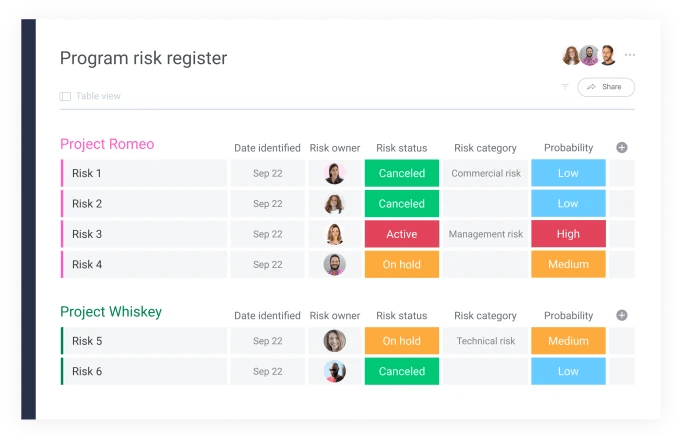
Here’s how you go about getting it
Risk management comes more naturally to experienced project managers, but you can learn a lot from other people’s mistakes as well. Asking questions is one of the greatest project management skills out there.
You don’t know what you don’t know, and you can’t be afraid to ask. Go through each line of your project schedule and ask yourself, “what could go wrong here?” Then ask yourself, “how can I plan for that?”
Use monday.com’s risk register to identify and evaluate risk, assign a risk owner, and add mitigation ideas. If you want extra training, you could also look into getting a PMI Risk Management Professional Certification.
4. Reporting
We’ll guarantee you’re not the only one interested in the likelihood of a successful project outcome. Great reporting skills make sure you know how the project is doing at each stage, and keep your stakeholders engaged too.
Here’s why it’s great for project management
When managing projects with a lot of moving parts, you’re going to need someone who knows the numbers.
Someone who can not only set up systems of measurement and keep them going, but who can interpret the data and present it in a clean and easily understandable fashion to all stakeholders.
Doing so requires extensive knowledge of various software programs that make project management easier. Excel skills are never a bad skill to have since most software exports that way.
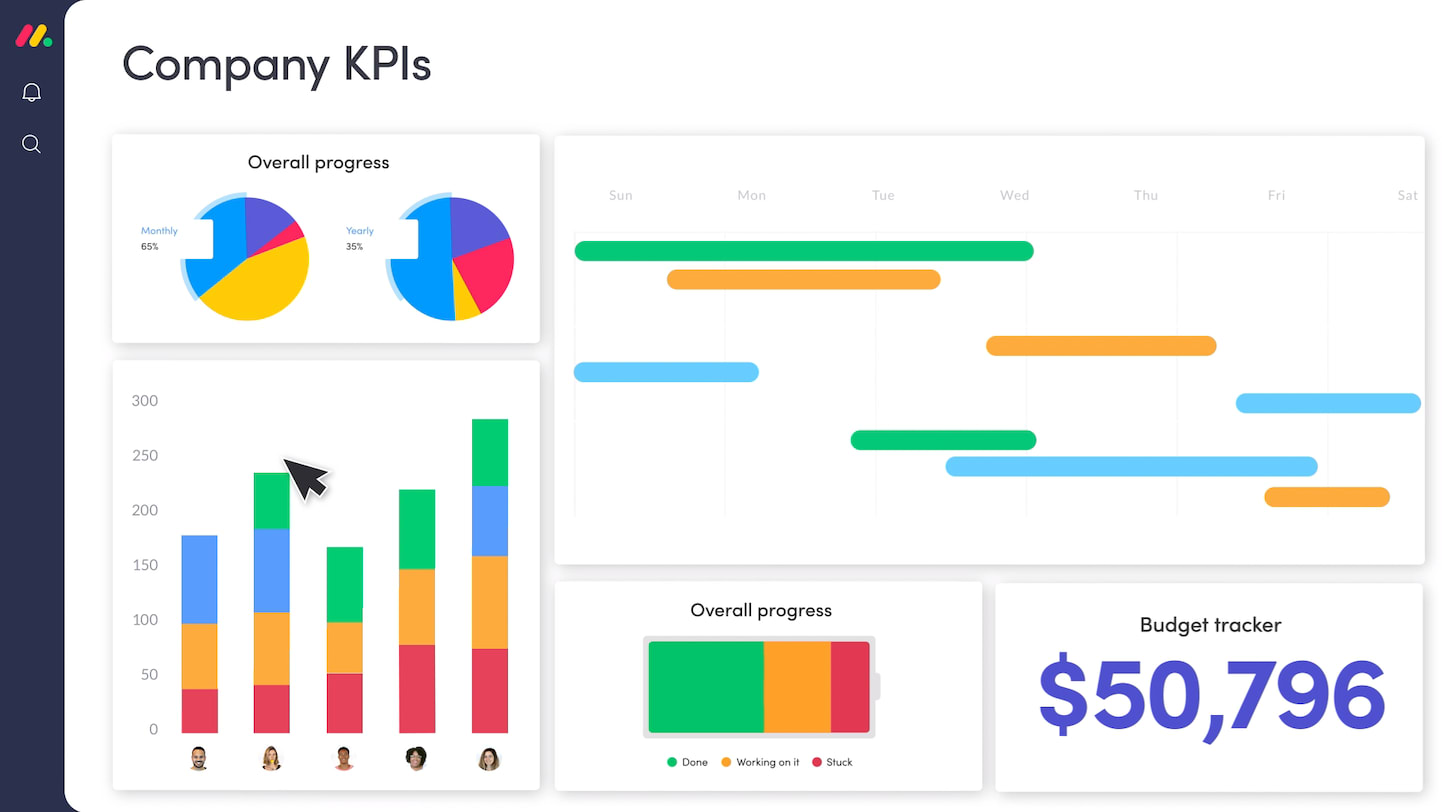
Here’s how you go about getting it
As a project manager, taking a class is a great way to learn reporting skills. Udemy, Coursera, and Udacity are all inexpensive ways to up your skills. On-the-job experience is another.
Ultimately, picking one software and aiming for reporting mastery is the way to go. monday.com makes it dead simple to create boards, reports, and dashboards, so you always have all the data you need at your fingertips. Perhaps start there.
3 soft project management skills you should hone in 2023
Soft skills are harder to attain and have compounding benefits that are hard to fully measure. There are countless soft skills to consider but these 3 reign supreme in the world of project management:
1. Leadership
Leadership is why people follow you through not only the good times but the hard times. Leadership starts by leading by example so that everyone knows where the bar is set.
Here’s why it’s great for project management
It’s not just about telling people what to do and ensuring they do it — although that’s important too. It’s about providing your team with the tools, knowledge, and support they need to do their job successfully.
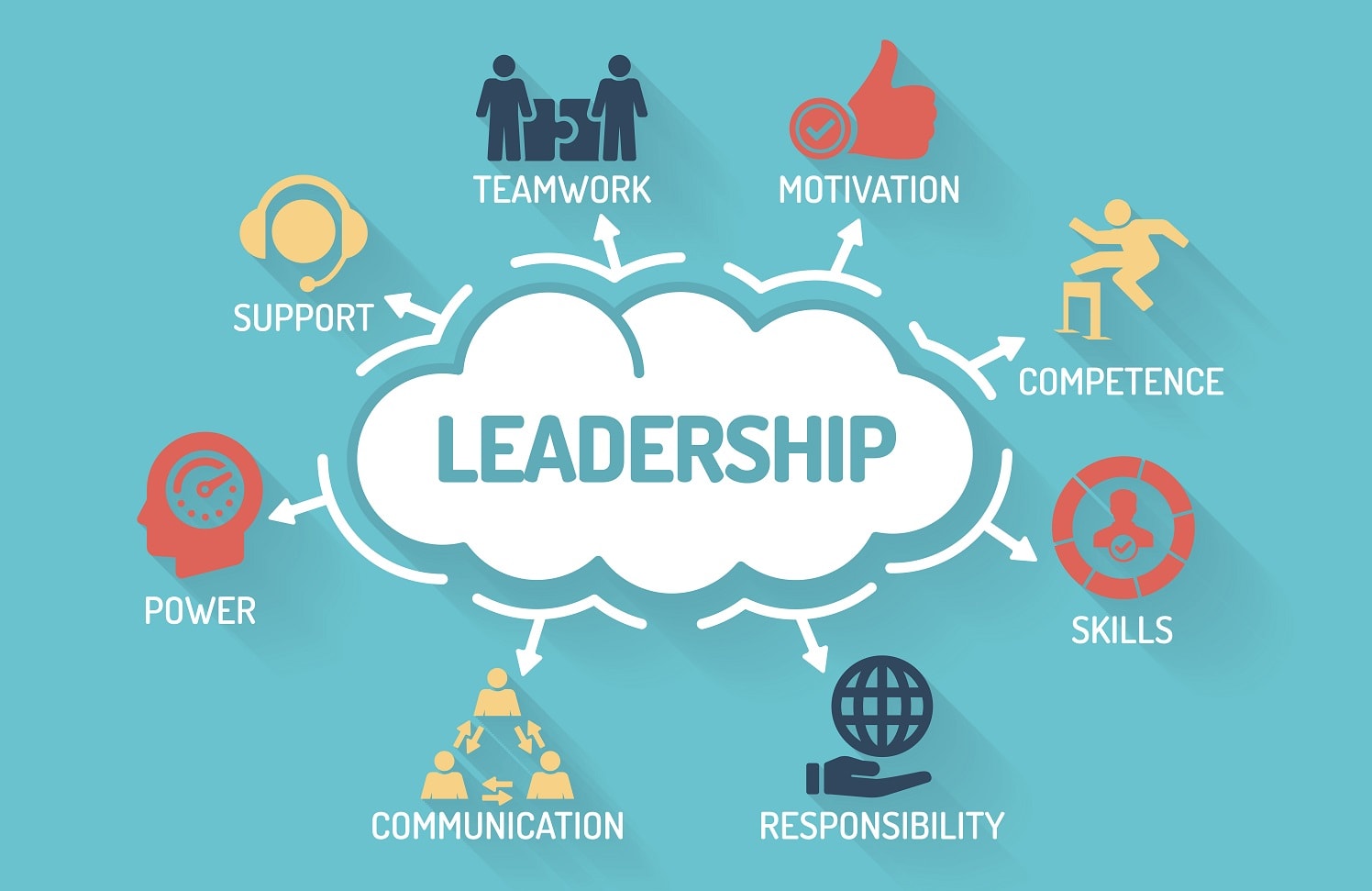
Here’s how you go about getting it
Like most soft skills, it’s hard to teach leadership skills. There are great books on leadership out there that will help you learn critical thinking skills, but acting like a leader is the only way to become one.
Ultimately, you have to volunteer for things to earn leadership skills. It may mean taking unpaid or lower-paying positions at first, or taking on the jobs nobody wants.
Over time though, you’ll find paying your dues in lesser leadership roles opens up the possibilities to lead bigger projects.
If you’re serious about growing your project management skills, then consider taking leadership courses, attending seminars, and having lunch or 1-on-1s with other leaders or mentors to see how they do things.
2. Communication
Effective communication is a good soft skill in any organization, but it’s especially important for project management professionals because projects often involve a wide range of people both inside and outside the company.
Here’s why it’s great for project management
Communicating complex subjects in a simple and easy-to-understand way reduces errors and ensures everyone’s on the same page. Negotiating skills are also invaluable when dealing with vendors that may be obstructing your project’s progress.
Finally, staying calm under pressure and keeping the team aligned is also a facet of effective communication.
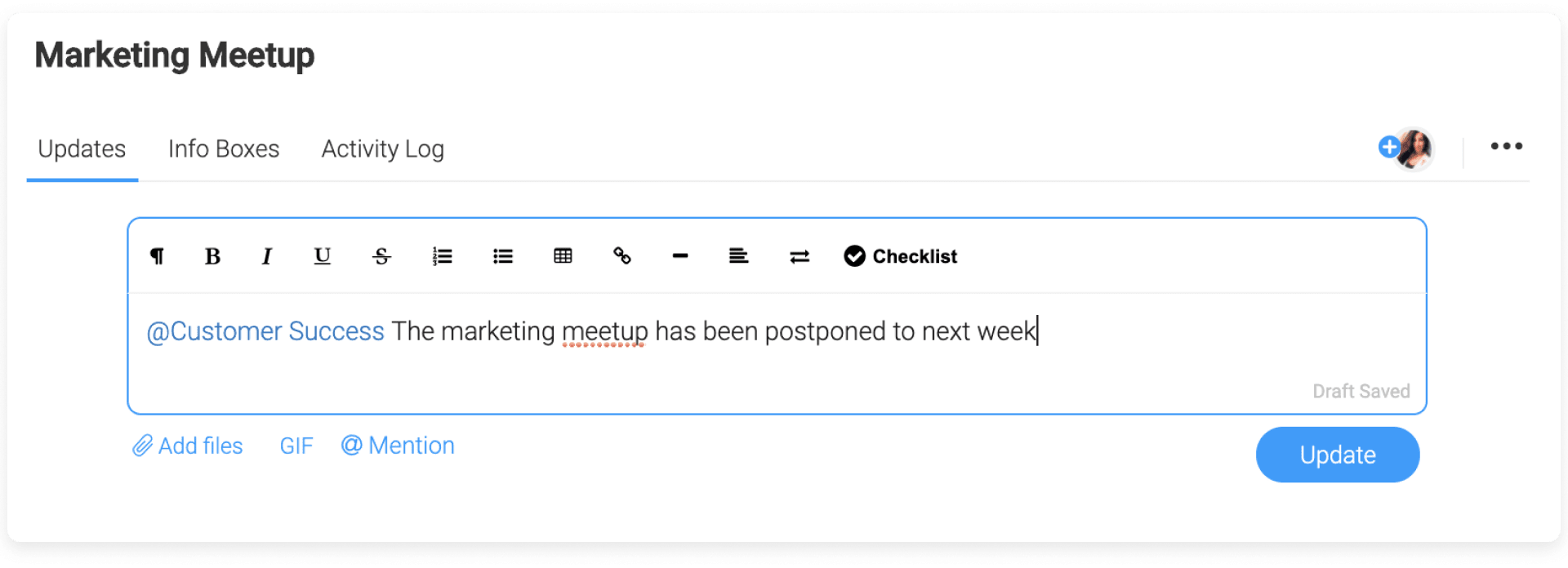
Here’s how you go about getting it
There are tons of books about communication, but nothing beats real-world experience managing projects.
Giving speeches, volunteering for leadership positions, and speaking up in meetings help tremendously. Anything that gets you more exposure to speaking in front of people.
Writing is another element of communication that’ll help you create better messages for your team and prepare for speeches or presentations.
If honing this key skill through volunteering isn’t possible, try recording yourself giving presentations or lectures to catch verbal tics, dissect what’s working, and pinpoint what’s not.
3. Organization
Organization is one of the essential skills people look for in an effective project management professional. Given management is all about effectively utilizing and organizing resources, the job title pretty much gives it away.
Here’s why it’s great for project management
As a project manager, it’s your job to prevent chaos, whether that be providing relevant project updates to stakeholders, preventing scope creep, or setting realistic expectations to your staff.
If your inbox is flooded with unanswered emails, your phone’s ringing off the hook, and your people aren’t doing their job, there’ll be unintended consequences as a result.
Only through creating systems and staying organized can you stay on top of all the moving pieces and see a project through to completion.
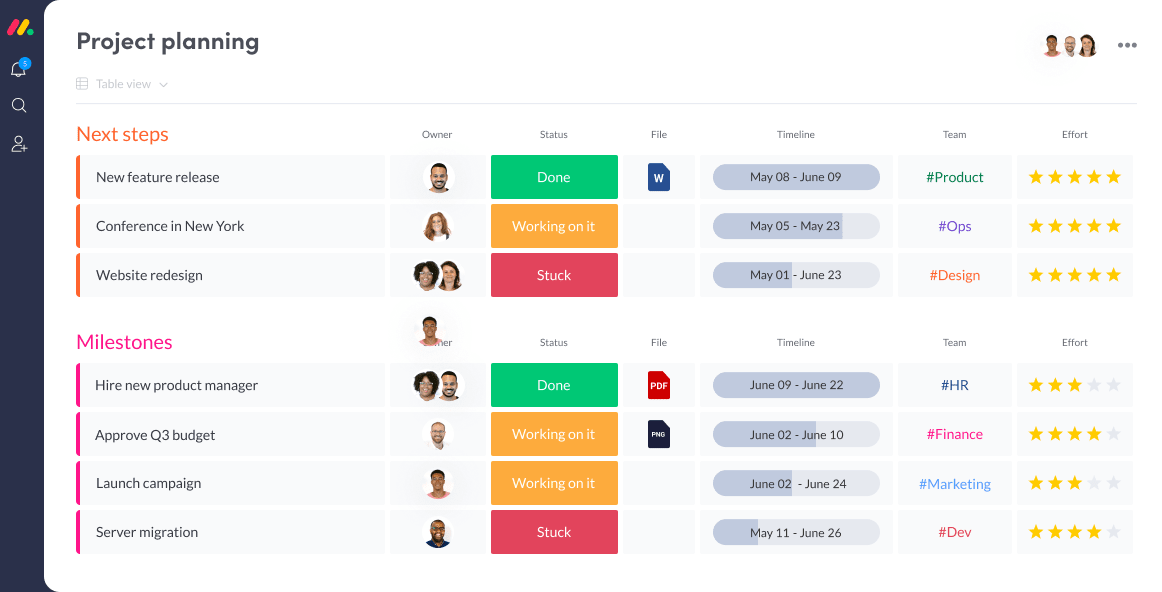
Here’s how you go about getting it
Organization as an essential skill boils down to a few important things:
There has to be a system to capture and process the flurry of information, changes, and requests. monday.com can be such a system. One you fill with all your thoughts, ideas, feedback, and documents. One that’s with you everywhere you go and links to all your other tools.
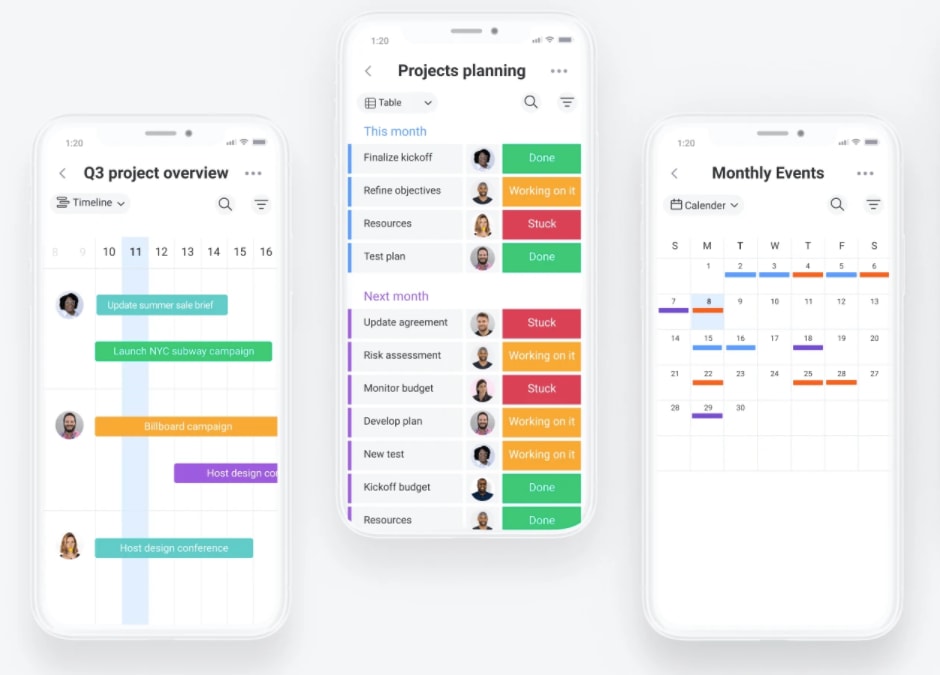
The second is fully understanding that multitasking gets you nowhere. You need uninterrupted blocks during the day to get things done. That’s an essential skill that creates the groundwork for a successful project.
Finally, you have to realize as a project manager, your best weapon is delegation. There’s no way you could do it all, and if you try, you’ll ultimately fail.Carving your own path
The project management skills needed to see your project goal through to fruition are far from rocket science, but they do require real-world experience and an investment in higher learning.
It’s not enough to know what to do in project management. You also need the right tools for the job.
monday.com is a Work OS that makes complex projects feel small, manageable, and straightforward. Its simple design, robust automations, and advanced reporting make it easy for both new project management professionals and seasoned veterans to get more done with less.

